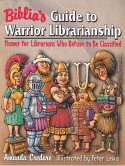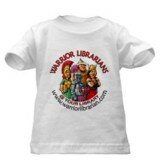|
Far from it being a dark and stormy night, it was a humid Sunday afternoon at a senior high school. The critically acclaimed author was delivering a lecture to students preparing for their finals. The HSC English topic "Journeys" was not one to be taken lightly.

WLW: Can you describe the types of changes from your earliest book to your latest book, Songs of the Suitcase?
Since my earlier publications, I've written a much more imaginative way. My first books were very journalistic in style. "Suitcase" deals with post "first-youth" life. It considers what it is like to deal with death; what I call the "Second Act of Life". It considers the strengths of birth, death and love. The "suitcase" is a metaphore for life and the journey through life, from birth onwards. I've considered the re-opening of "old suitcases", where you reflect on previous experiences.
The book has had very good reviews. It took 10 years to polish and perfect the book. It comes from short stories that were commissioned over the last 10 years.
WLW: So this book was commissioned?
No, when I've been commissioned to write over the last 10 years, I've considered the bigger picture and designed in blocks. I've strengthened the structural connections between the [six stories and a novella]. The book flows from the most narrative to the most fictional, and deals with [aspects of life] such as arranged marriages. I researched these myself, with [the other aspects] drawn from personal experiences.
I disappeared from the literary map for about 6 years, whilst I went on my own personal journey. My third child is autistic, so I've been in a new world. I call this a "Journey into the Heart of Language", as my third child "recovered" from autism and developed language skills after about 18 months of intensive work.
WLW: Are there any jokes in Songs of the Suitcase?
Well, it has humor. I describe a ferocious grandmother engaged in a battle of wits with the Jewish hippy wife of her grandson.
WLW: Does humor play any role in your writing?
My next novel is about music and midlife crisis. I've mostly written humor, particularly in the years I was a columnist with [The Sydney Morning] Herald. It's the most extreme genre, often the result of very intense anger. If you examine the work of most comics, you'll find it is based largely on the fact that they were very pissed off about something. For example, Seinfield is always examining something [about which] he is really pissed off about.
Do you have a personal favorite humor author?
I really enjoy humor in non-print formats. For example, Seinfeld and The Simpsons. I consider The Simpsons to be trully revolutionary.
Unfortunately, the interview was terminated at this point, due to the intervention of the organizers of the lecture, who had actually paid for the appearance ...
|




